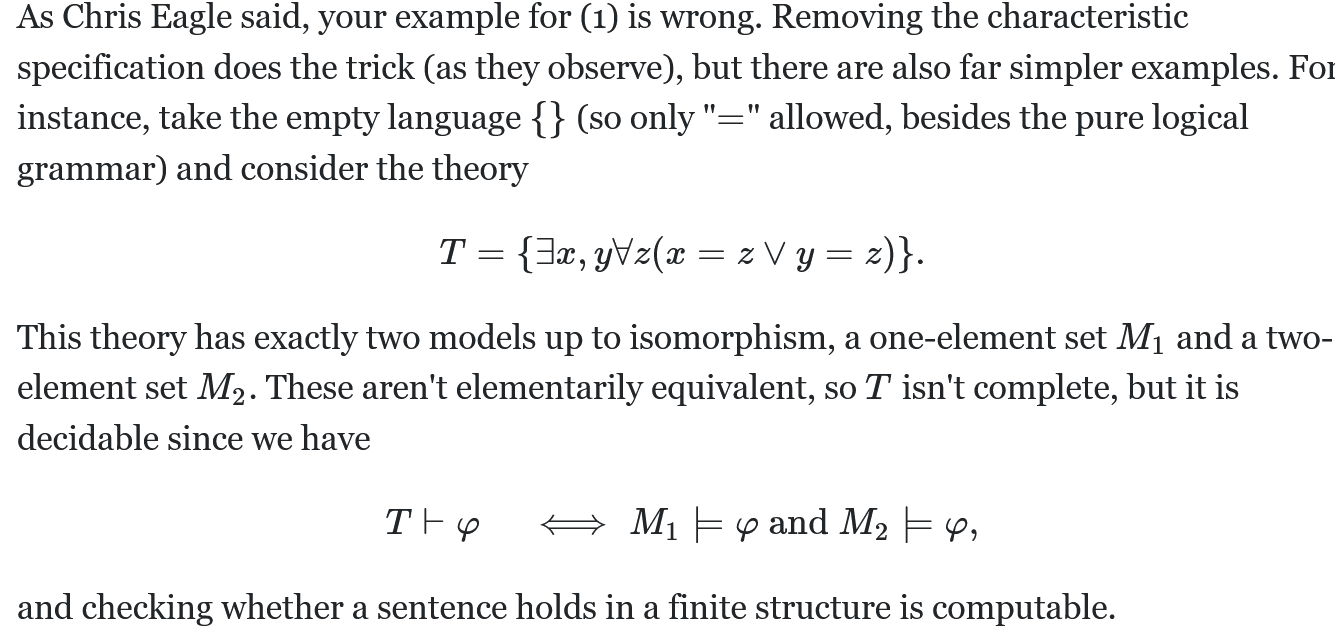I know right now that completeness implies decidability of a theory, but the question is essentially the converse of this:
Given an arbitrary formal theory that is somehow decidable by a Turing Machines, in the sense that for any sentence in the theory, you can decide it's truth or falsity by some means, can you show that it will inevitably be a complete theory?
If it isn't universally the case that decidability of a theory implies the completeness of a theory, are there any conditions that are required to have decidability of a theory be equivalent to completeness of a theory?

I'm going to ask a new question, different from the old question I asked: Given a halt oracle added to the Turing Machine, that is a magical oracle tape that can solve all problems Turing-reducible to the halting problem, can we nail down the standard interpretation/model of Peano Arithmetic?